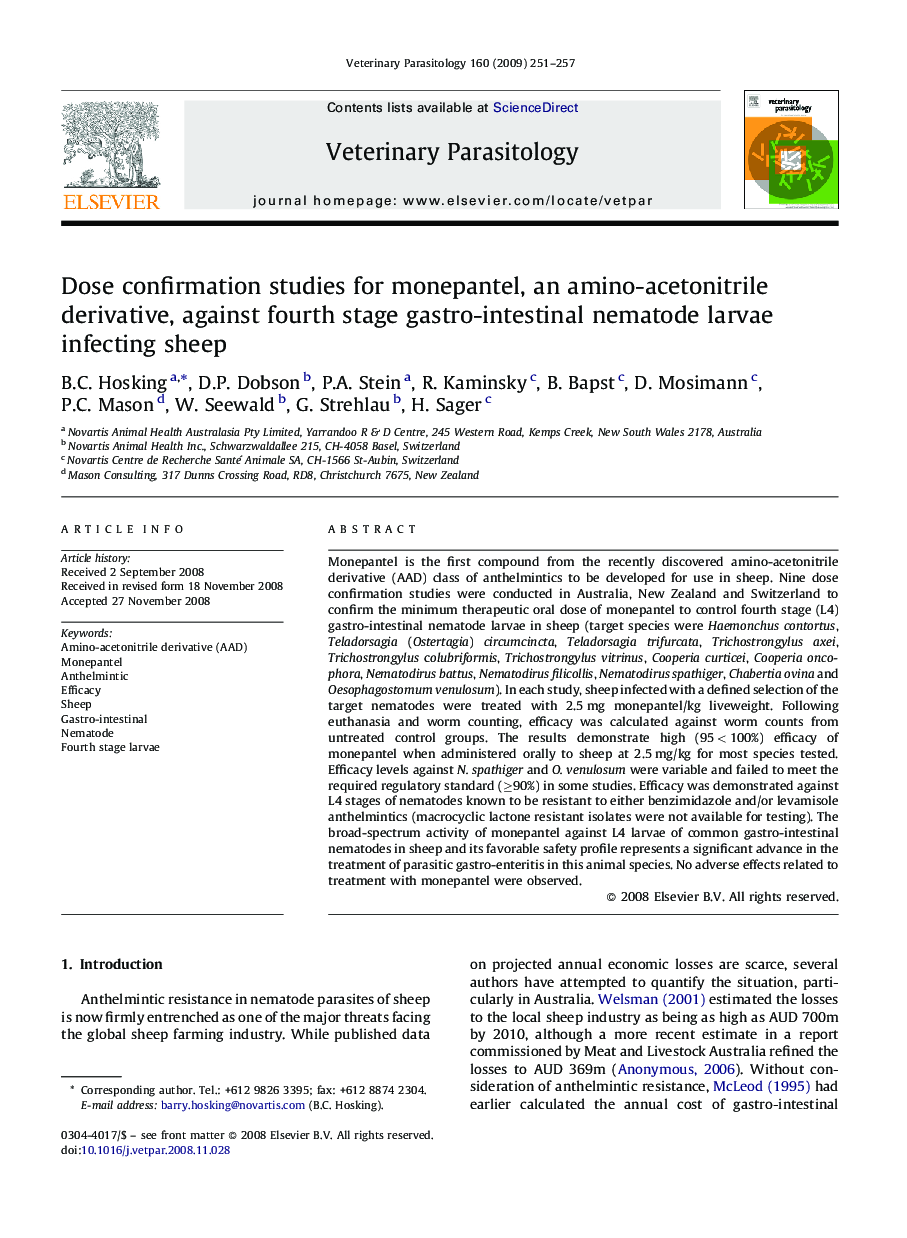| Article ID | Journal | Published Year | Pages | File Type |
|---|---|---|---|---|
| 2471196 | Veterinary Parasitology | 2009 | 7 Pages |
Monepantel is the first compound from the recently discovered amino-acetonitrile derivative (AAD) class of anthelmintics to be developed for use in sheep. Nine dose confirmation studies were conducted in Australia, New Zealand and Switzerland to confirm the minimum therapeutic oral dose of monepantel to control fourth stage (L4) gastro-intestinal nematode larvae in sheep (target species were Haemonchus contortus, Teladorsagia (Ostertagia) circumcincta, Teladorsagia trifurcata, Trichostrongylus axei, Trichostrongylus colubriformis, Trichostrongylus vitrinus, Cooperia curticei, Cooperia oncophora, Nematodirusbattus, Nematodirusfilicollis, Nematodirus spathiger, Chabertia ovina and Oesophagostomum venulosum). In each study, sheep infected with a defined selection of the target nematodes were treated with 2.5 mg monepantel/kg liveweight. Following euthanasia and worm counting, efficacy was calculated against worm counts from untreated control groups. The results demonstrate high (95 < 100%) efficacy of monepantel when administered orally to sheep at 2.5 mg/kg for most species tested. Efficacy levels against N. spathiger and O. venulosum were variable and failed to meet the required regulatory standard (≥90%) in some studies. Efficacy was demonstrated against L4 stages of nematodes known to be resistant to either benzimidazole and/or levamisole anthelmintics (macrocyclic lactone resistant isolates were not available for testing). The broad-spectrum activity of monepantel against L4 larvae of common gastro-intestinal nematodes in sheep and its favorable safety profile represents a significant advance in the treatment of parasitic gastro-enteritis in this animal species. No adverse effects related to treatment with monepantel were observed.
